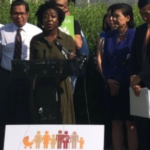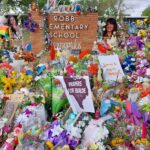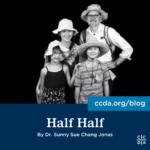Luke Alliance envisions a world where Christians face less persecution, and when they do, they should have a robust path to relief and continued ministry. We work towards that end through global advocacy and pastoral care for the persecuted church. There is a great need for this work. Approximately 1 in 7 Christians worldwide suffer from persecution, and 2 out of 5 Christians in Asia are persecuted for their faith.
Pastoral Care is a wide-ranging aspect of our work. Globally, it looks like a recent retreat for persecuted pastors and ministry leaders from around Asia. Over 30 Christian leaders met in Kuala Lumpur, where our founder and President, Corey Jackson, led them through seminar topics on building networks of support, discussing the theology of risk, and meeting each leader one-on-one to care for them. The conference was a profoundly emotional experience for everyone involved.
Domestically, we are also expanding our pastoral care to asylum seekers in the United States. Trac reports that nearly four million asylum cases are making their way through the immigration system, and the average wait time for asylum seekers to resolve their cases at USCIS is approximately 636 days and increasing. That’s an enormous amount of time in limbo, worrying about what will happen to their case and learning to survive in a new country. Luke Alliance is building a holistic model of care based on learning about and meeting needs in caring relationships to help the most at-risk asylum-seeking individuals and families build a life in the United States and re-engage with God and their ministries.
Many organizations raise awareness of persecution through advocacy. But Luke Alliance distinguishes itself among them as an organization that recognizes that advocacy is a long-term commitment to the well-being of our fellow image bearers in life and faith. What we do for them in advocacy and pastoral care is akin to what people do for their family members who are struggling. It’s powerfully relational work that seeks to reflect Matthew 25’s description of holistic care for the struggling world: we minister to the sick, feed the hungry, clothe the naked, and visit the oppressed and imprisoned. We also bring accounts of their suffering to the attention of diplomatic officials and influential civic leaders who can act on their behalf.
Some of the best questions we receive are about how individuals and churches can get involved in advocacy and care for persecuted believers. Here are three ideas that we share, drawn from our work at Luke Alliance.
The Great Commission has a Vocational Dimension.
Our vocational callings as doctors, teachers, lawyers, advocates, politicians, parents, neighbors, and more mean that we bring the gospel with us wherever we go, and our work matters immensely to the fulfillment of the Great Commission. We bring the gospel to bear when we treat coworkers, clients, patients, children, and anyone we encounter with dignity and respect, as image bearers, and work for and with them towards the flourishing of life in the coming kingdom.
When I read theology by Asian pastors, I am struck by the way they work with God in their communities
—their vocation is never separate from their cultural or spiritual identity, and it works for the good of everyone. In different ways, we have all been deeply challenged to see our work not solely as a way to make money, but also as a means by which we bring the gospel to our communities through our work.
Caring Past Our Capacity Yields Incredible Transformation.
One of the simplest ways to carry out the Great Commission is to care beyond our capacity
—acknowledging our own very legitimate problems, but then moving beyond ourselves to see and care for our neighbors. There’s a vulnerability in this form of caring that I see modeled by individuals and families I’m in relationship with who are seeking asylum in America.
I’ve seen and experienced firsthand the depth of community that develops as we bear one another’s burdens through shared experiences of loss and struggle, as well as joy and success. Our struggles might be different and have dramatically different effects on our lives, but wading through them together with Jesus and through the power of the Holy Spirit creates a community that can’t easily be shaken.
People Over Programs.
One idea that we talk about frequently at Luke Alliance is that the emotional, physical, and spiritual settling of people facing traumatic persecution and asylum-seeking contexts cannot happen on its own. In the same ways that families can come together around their struggling members, believers can ally themselves with people struggling to rebuild their lives.
We’re seeking to befriend and believe with people in the midst of these experiences that they will one day reconnect with their identity and calling in Jesus, and eventually return to their ministries. In the future, programs can help facilitate this. But programs without relationships that inform them won’t be effective.
Loving like family amid loss and rebuilding takes many forms, and more people than we ever imagined. It truly takes an entire church and community to help asylum seekers.
Luke Alliance welcomes the opportunity to join with people as allies of the persecuted church. We would love to talk more with you as you explore the ways God calls you to work with Him in His message to renew and restore all things and people to Himself.

About Charity Cuellar Starchenko
Charity Cuellar Starchenko is Director of Communications at Luke Alliance. She is working on a Th.M. in Missiology at Edinburgh Theological Seminary, where her thesis research focuses on cultivating inclusion and belonging, particularly among oppressed and persecuted people in the local church. She lives in Cary, North Carolina, with her husband and two children.




